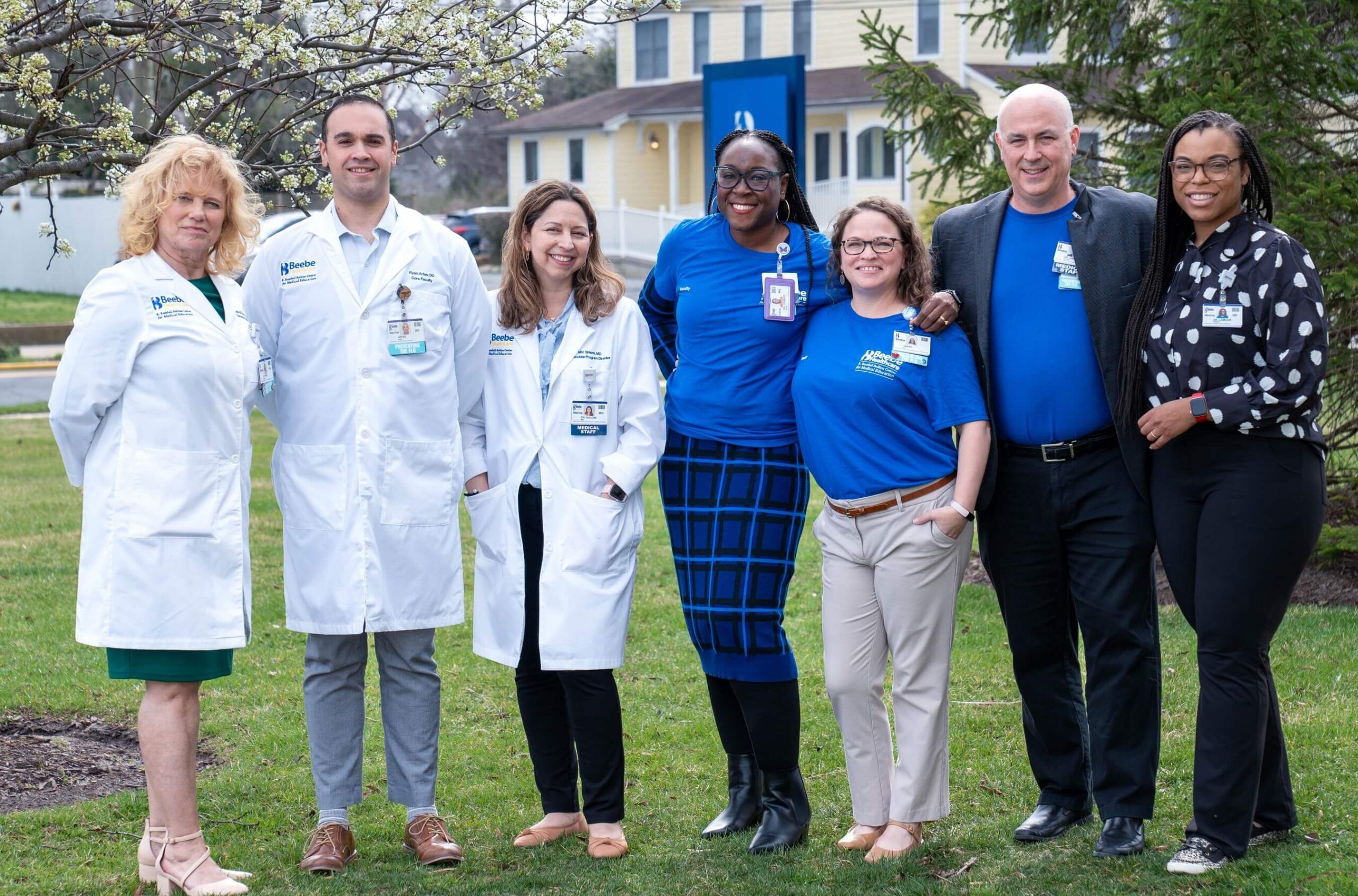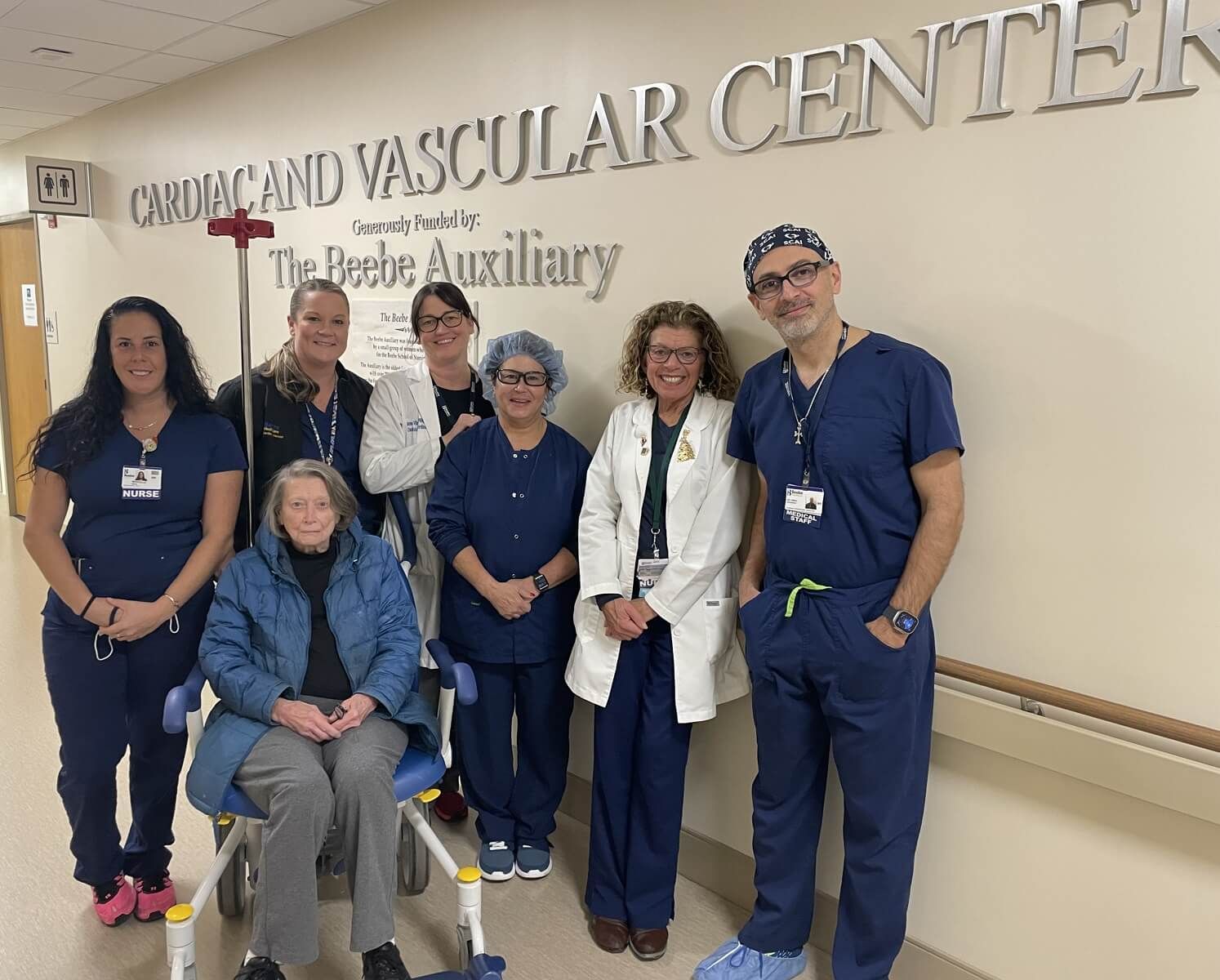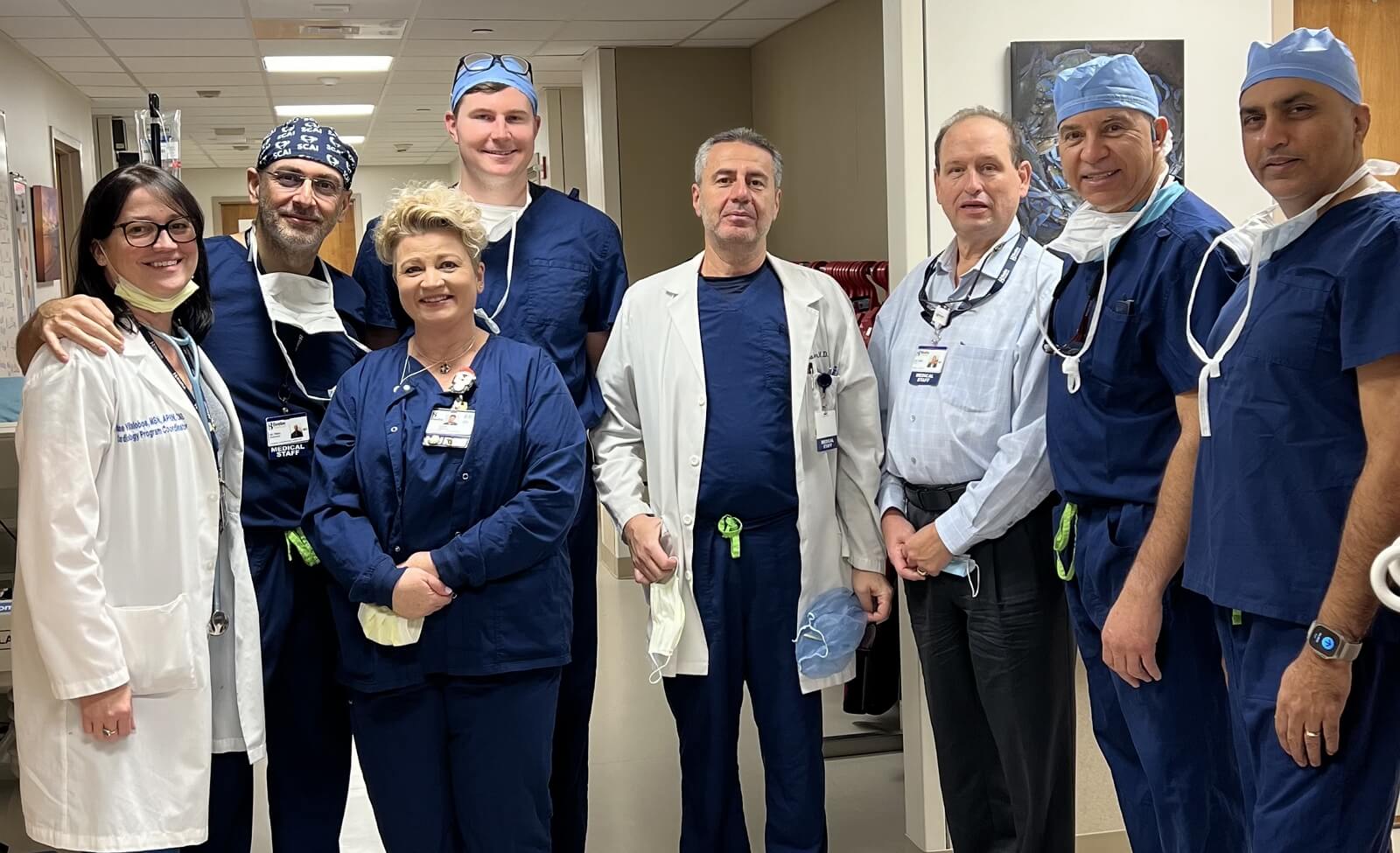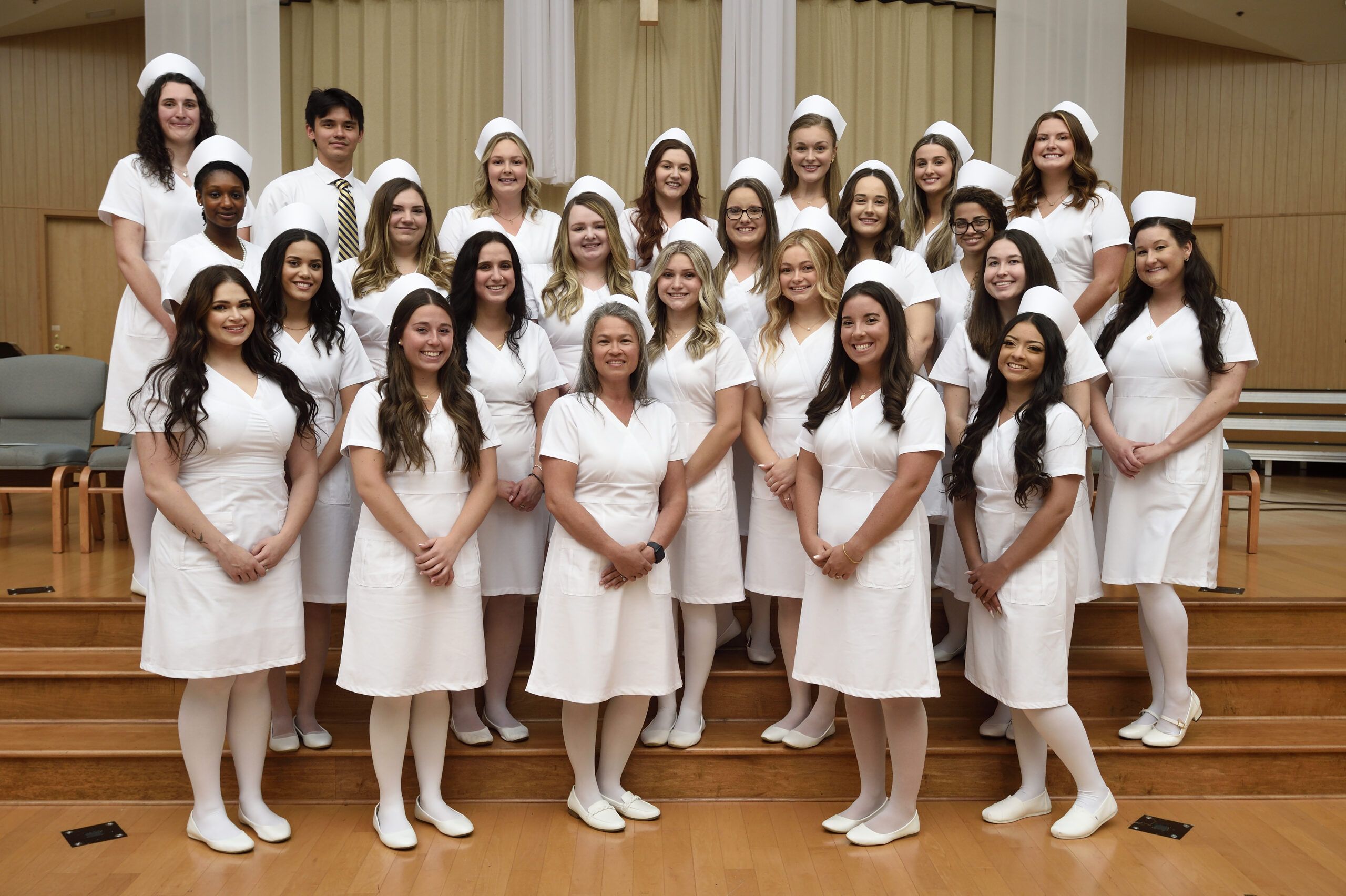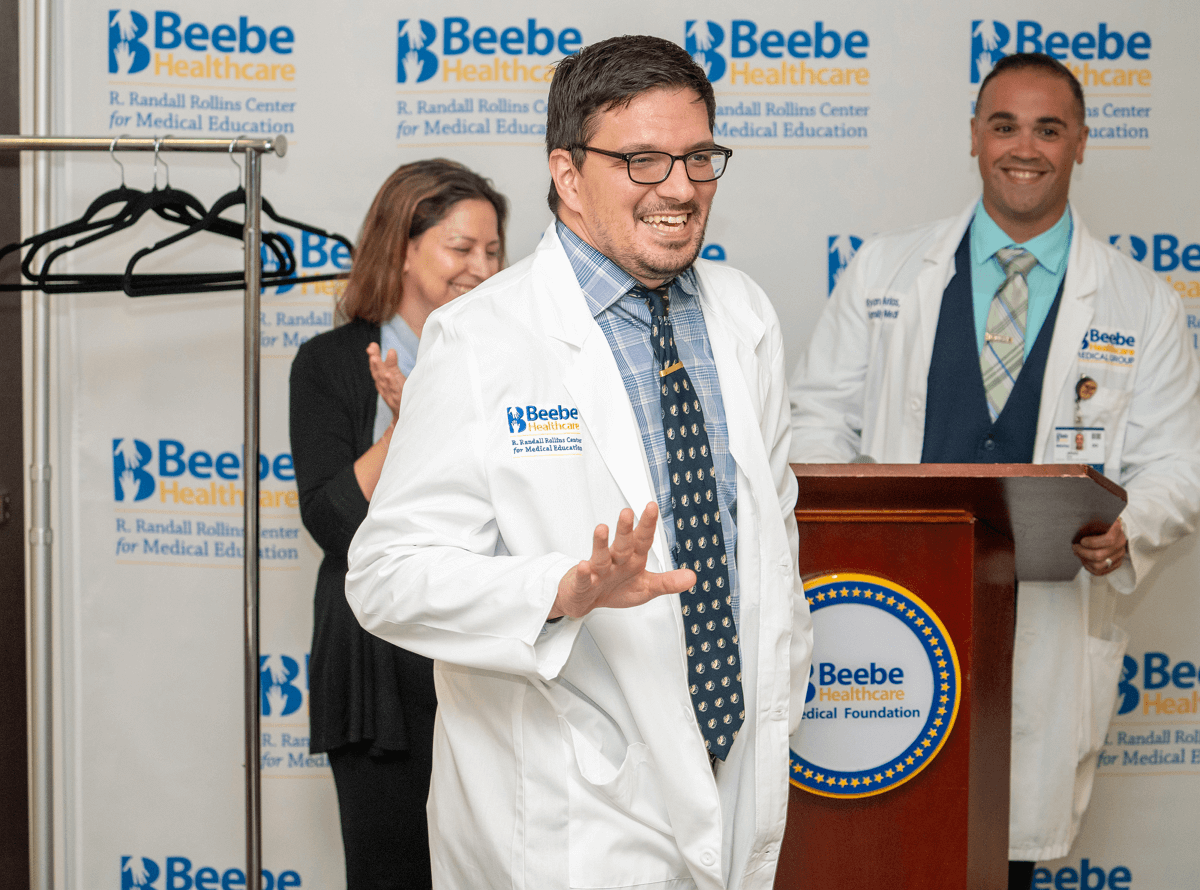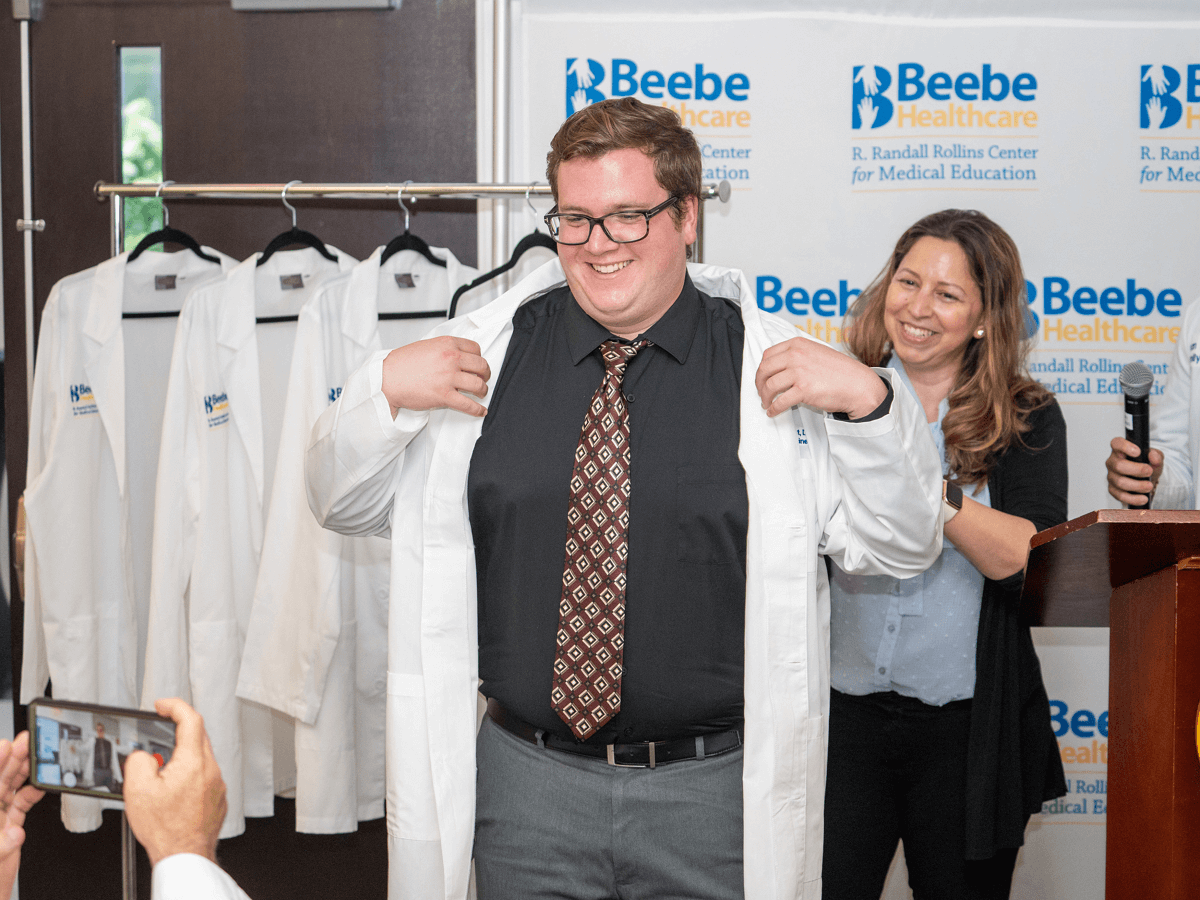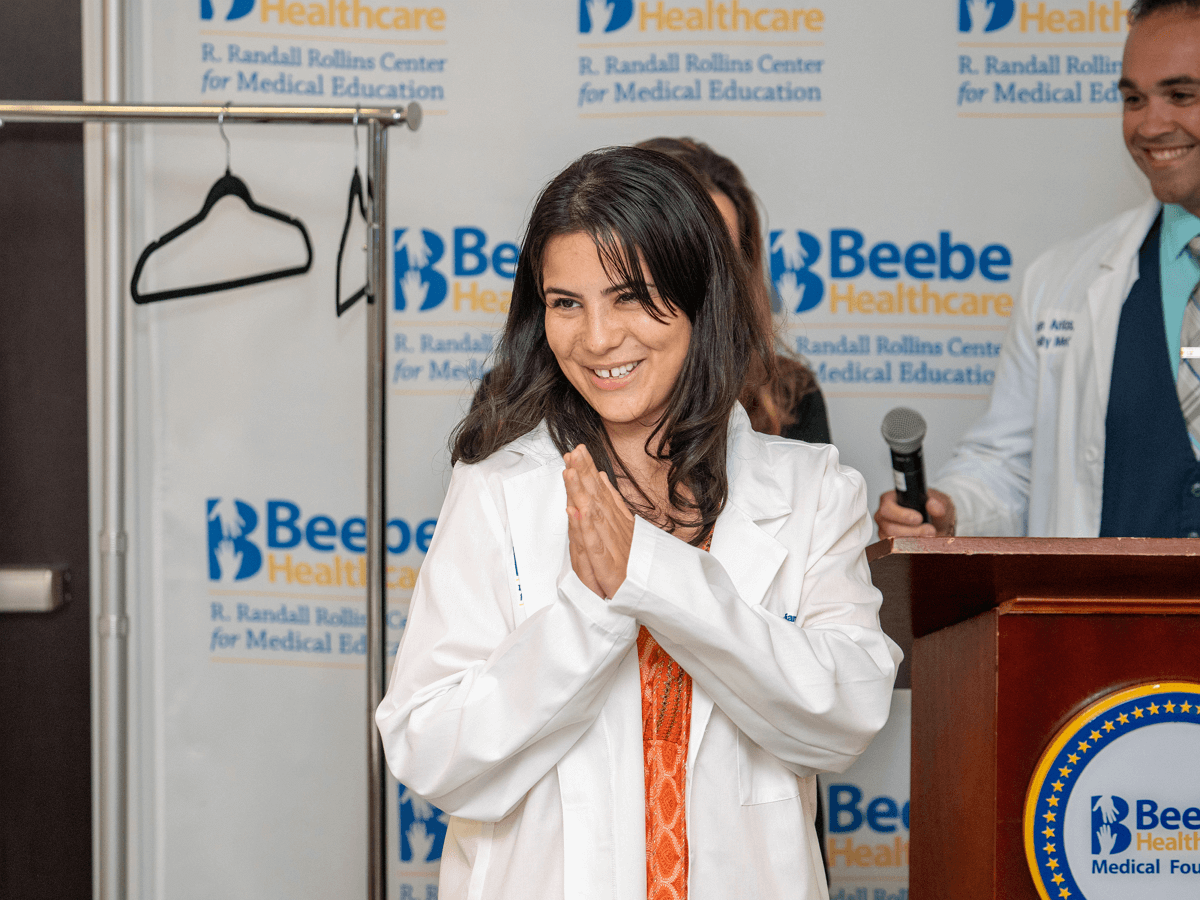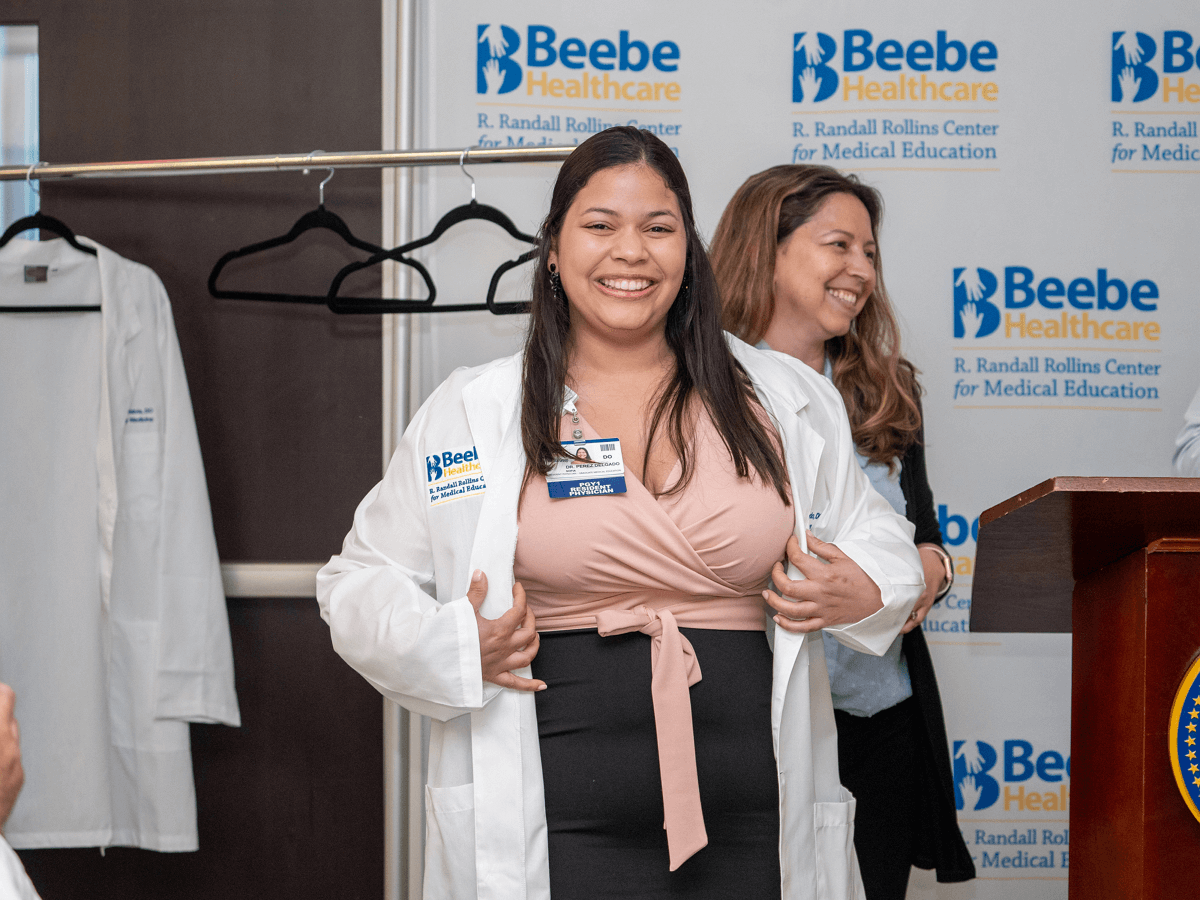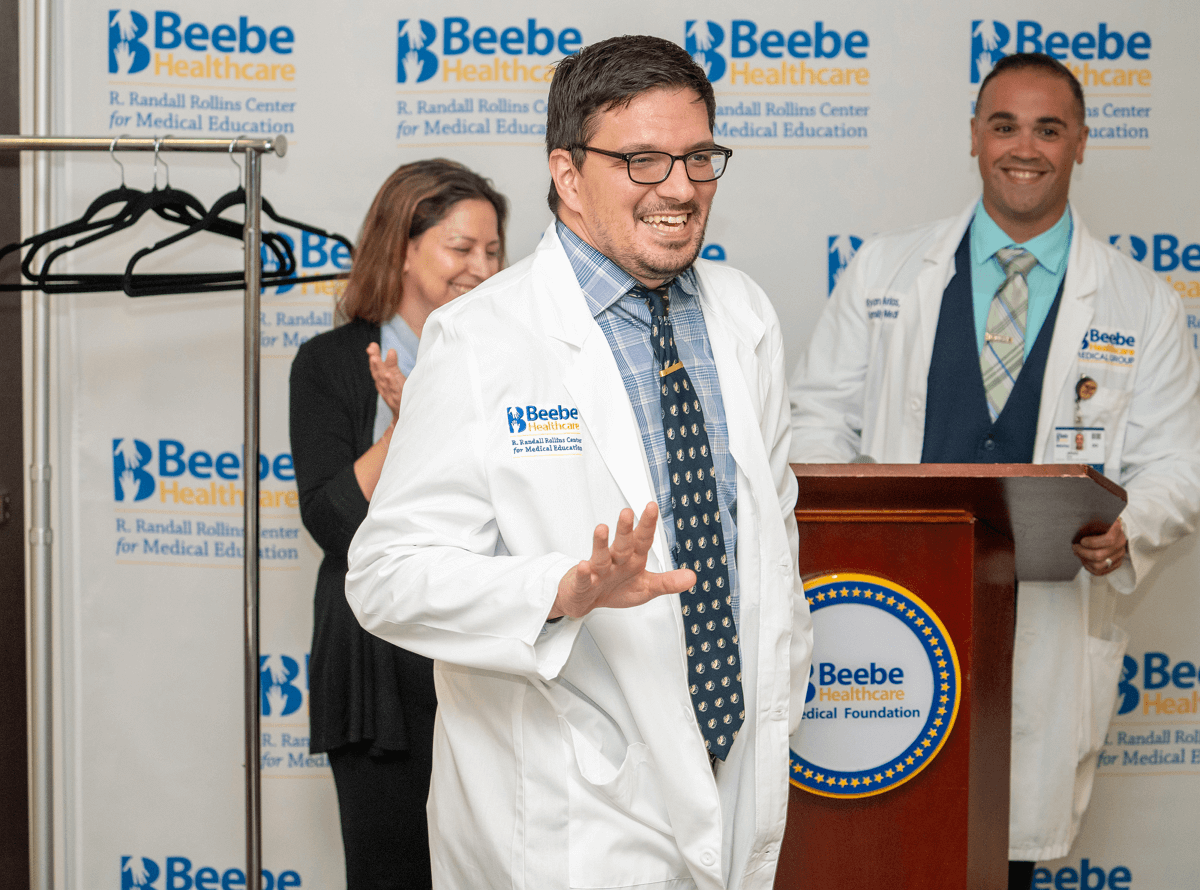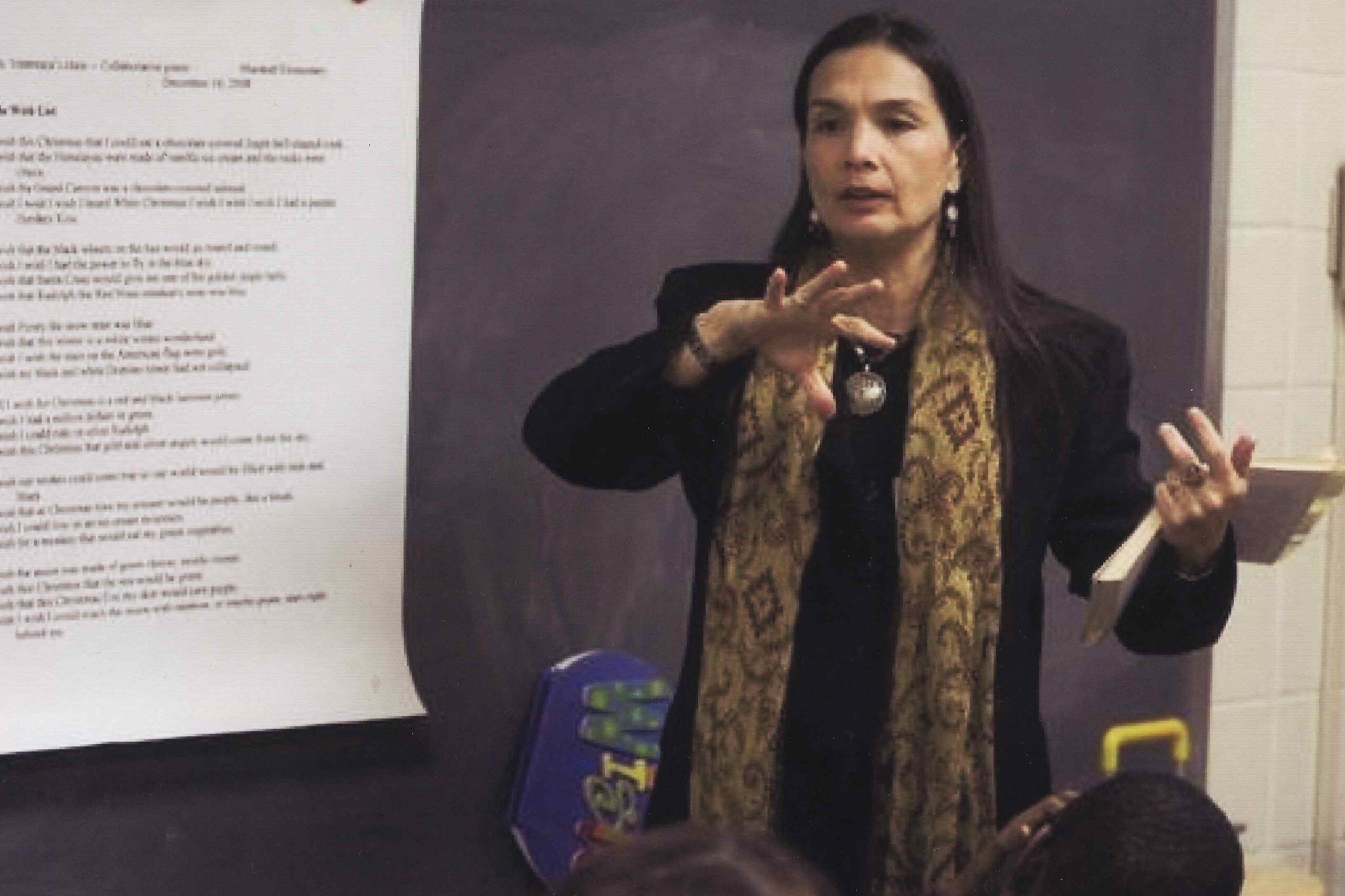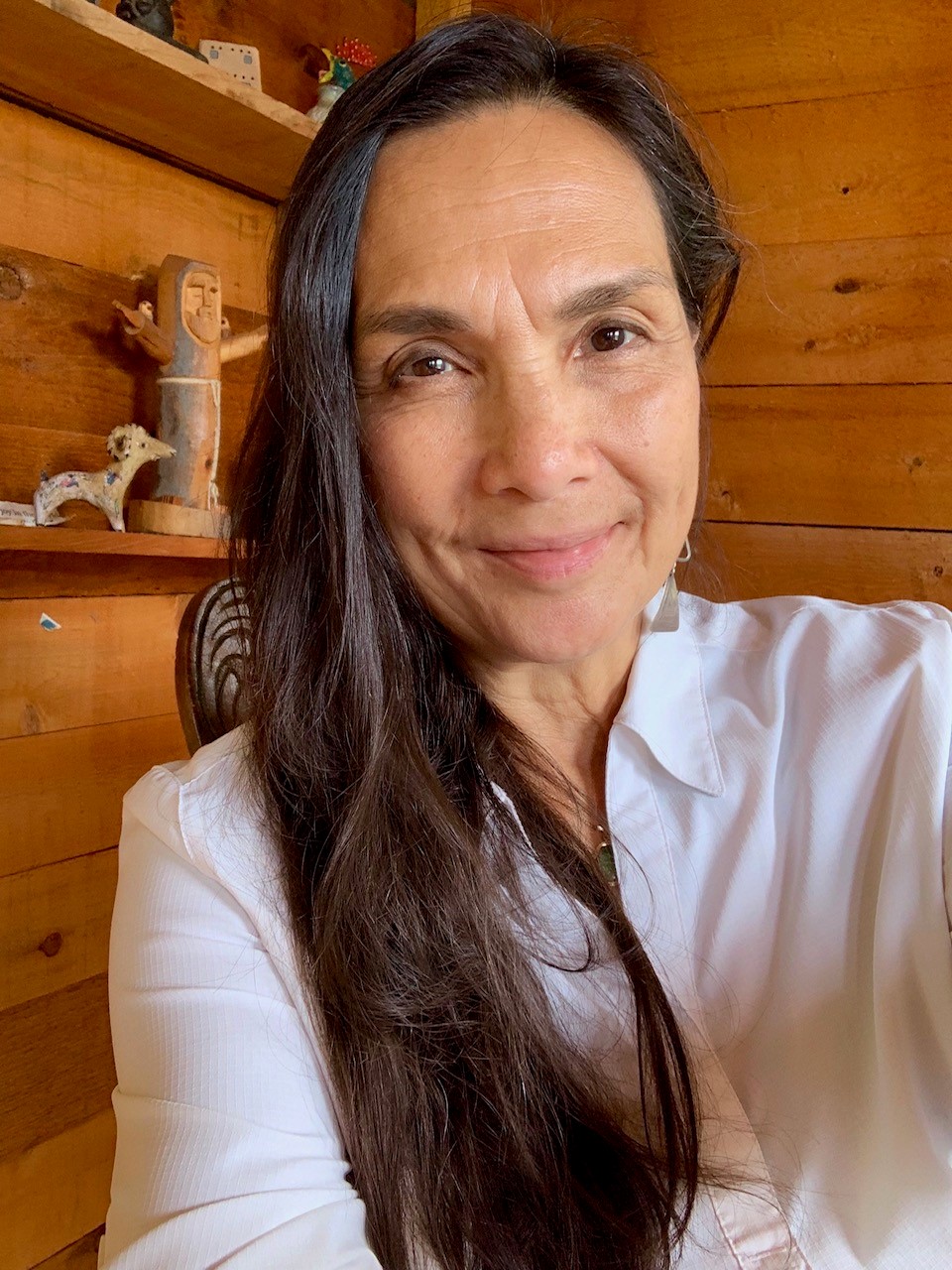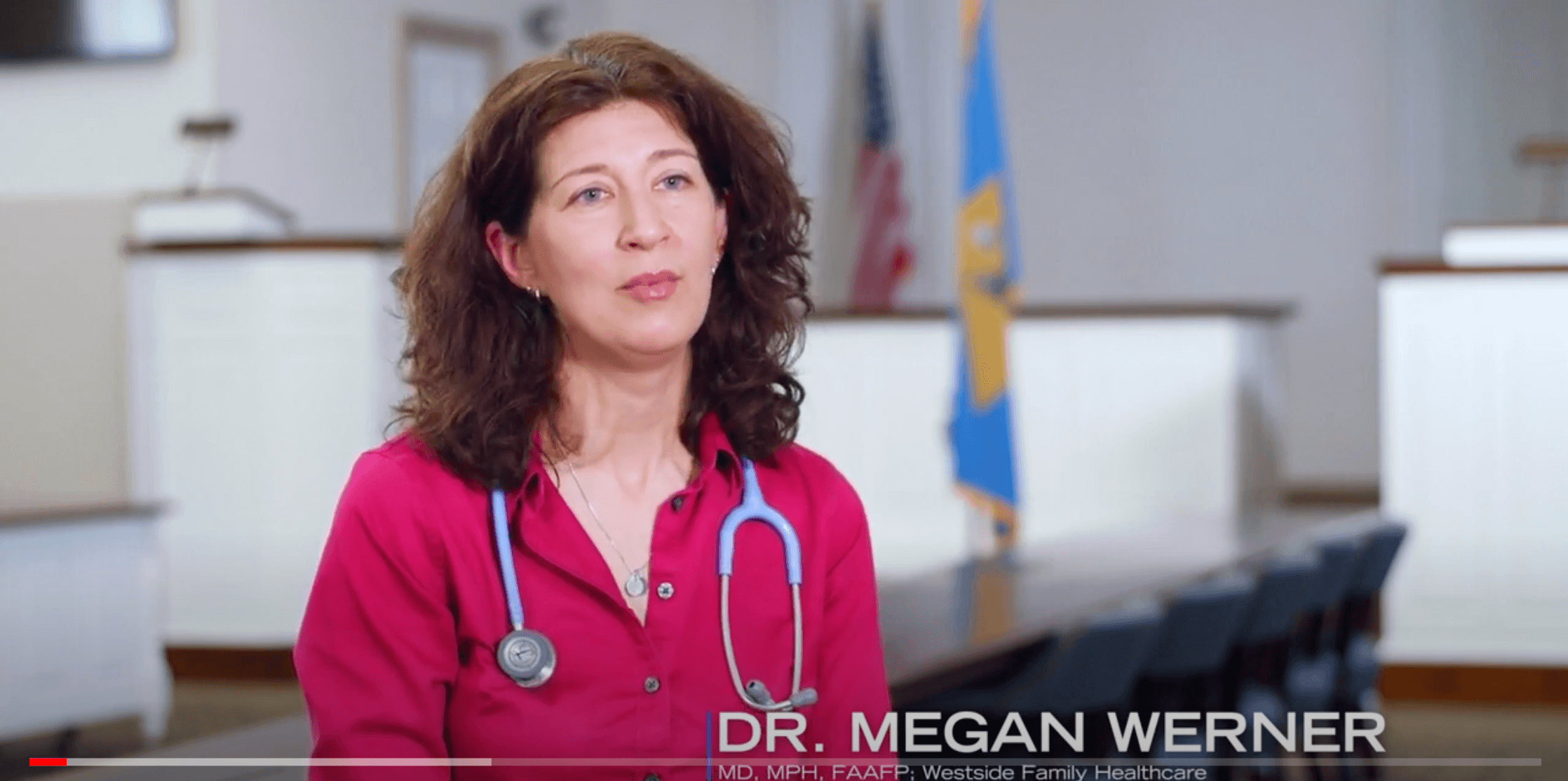Beebe Healthcare’s Family Medicine Residency Program Selected for Exclusive Pilot Project
Beebe Healthcare Residency Program Selected for Special Society for Teachers of Family Medicine Project
Beebe Healthcare’s Wendi Schirvar, PhD, left, Ryan Arias, DO, Miri Shlomi, MD, Joyce Robert, MD, Tanya Ray, MS, Jeffrey Hawtof, MD, and Cynthia Lamour, DO, all of whom are affiliated with the Family Medicine Residency Program.
Sussex County Program 1 of 25 in U.S. Picked for Pilot Project
April 29, 2024
LEWES – Beebe Healthcare’s R. Randall Rollins Center for Medical Education is proud to announce that its Family Medicine Residency program is one of just 25 across the country that has been selected to participate in a special pilot project facilitated by the Society for Teachers of Family Medicine (STFM).
The project is designed to elevate the importance of competency-based medical education while integrating a more individualized and personalized approach to learning for medical residents.
“There is so much benefit in developing individualized learning plans for our residents, with consideration for each person’s special needs, strengths, and goals,” said Joyce Robert, MD, FAAFP, Program Director. “We are incredibly excited to be part of this project and to have the opportunity to lead the way and set an example for other residency programs to follow.”
In addition to implementing new hands-on approaches in the clinical training environment, the STFM program will put new technologies in the hands of residency program leaders, who will be spending more time on direct observation as they are working with clinical residents. The goal is to allow for real-time assessments in medical training environments. Additionally, the program promotes the importance of communication, teamwork, and leadership from a professional development standpoint, and work/life balance and wellness on a personal level.
“This project encourages us to look at what we are doing through a different lens and take a more holistic approach as we grow our people, and therefore our program,” said Dr. Robert. “It’s a chance to be at the forefront of positive change and we are excited to be part of it.”
Beebe’s Family Medicine Residency program welcomed it inaugural cohort of residents in summer 2023, and recently announced the second group of residents, who will come onboard this July. The program is led by Dr. Robert and Miri Shlomi, MD, Associate Program Director, both of whom will participate in a series of conferences sponsored by STFM, as Beebe adopts and implements its competency based medical education curriculum. They and their colleagues will have opportunities in the future to share their experiences and learned best practices through their activism in the Delaware Academy of Family Physicians (DAFP).
Recently, Dr. Robert was inducted as DAFP’s President-Elect and Ryan Arias, DO, primary care physician and faculty member within Beebe’s Family Medicine Residency program, was named DAFP Teacher of the Year.
“We have come a long way in a short period of time,” said Dr. Robert. “So many wonderful things are happening because our team is made up of a group of people who are passionate about the work, dedicated to doing things the right way, and committed to growing in a way that positions Beebe as a premier place to come for family medicine residency training.”
* * *
Earlier this year, Beebe’s Family Medicine Residency broke ground on a new clinic in Long Neck, the future site where present and future family medicine resident physicians will see and care for patients.
With this new facility, the Family Medicine Residency can continue to expand to serve a culturally diverse population in one of the fastest growing areas of Sussex County. With the full complement of residents, the doctors will be able to provide about 7,000 primary care appointments.
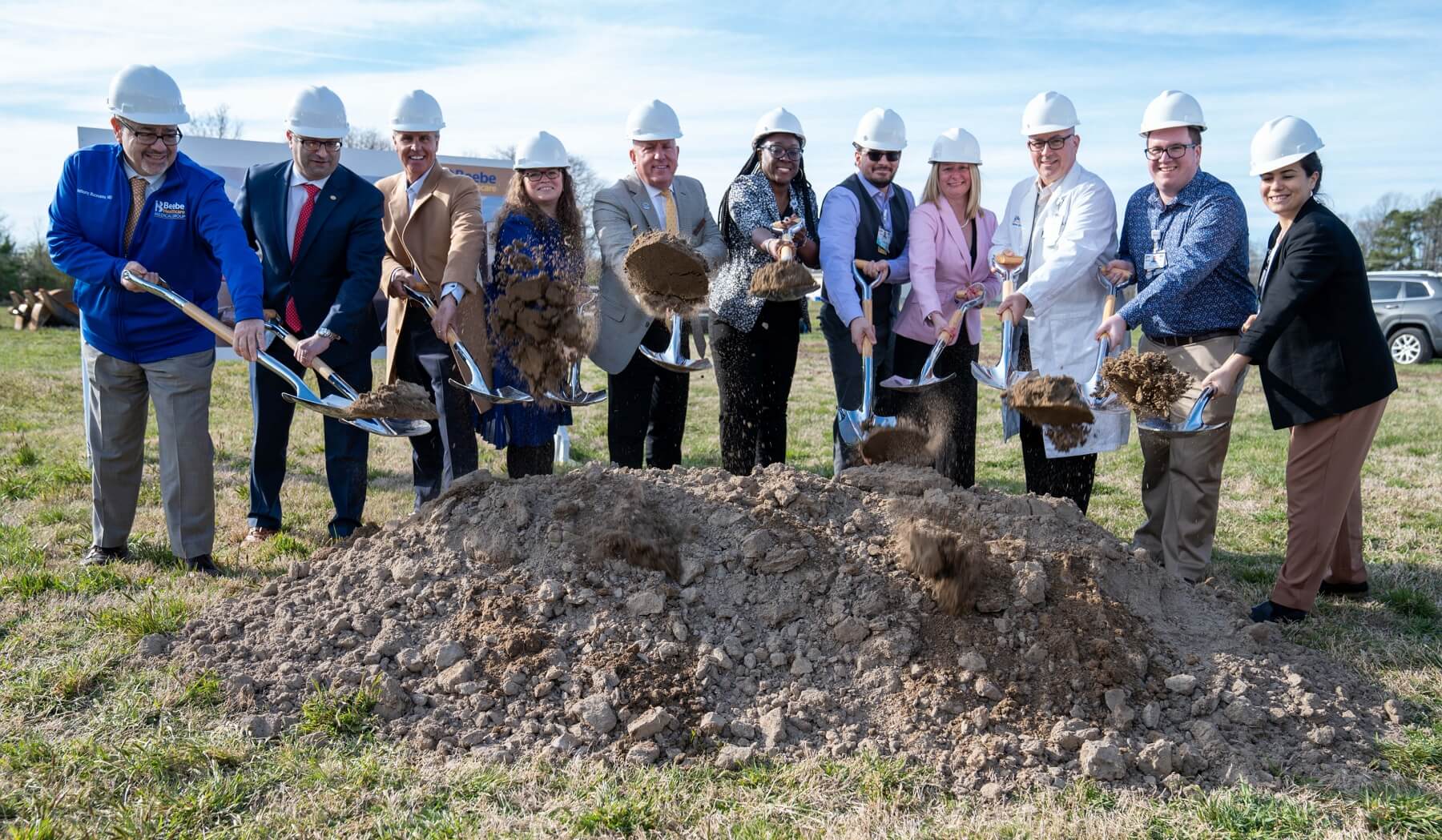
Celebrating the groundbreaking were Anthony Buonanno, MD, Paul Sierzenski, MD, Mike Meoli, Board Chair Tanya Ray, Beebe Medical Foundation President Tom Protack, Joyce Robert, MD, Jacob Valvis, DO, Lighthouse Construction CEO Megan Glick, Jeff Hawtof, MD, Harrison Eckert, DO, and Monica Javadian, MD.
“Access to primary care is one of our strategic pillars for the future of healthcare in Sussex County,” said Paul Sierzenski, MD, Senior Vice President and Chief Physician Executive at Beebe Healthcare. “It is significant that Beebe is training our own physicians who could possibly stay in Sussex County. Many residents choose to stay where they completed their residency. It’s just one more way Beebe is addressing the community’s need for primary care.”
Beebe’s first four family medicine resident physicians started in July 2023. They have been seeing patients at the Margaret H. Rollins Lewes Campus and at Beebe Primary Care Long Neck, which currently serves as the residency’s outpatient clinic. On March 15, the residency matched with four more physicians, who join Beebe this summer.
The office functions as a full-service primary care office, including seeing discharged patients, performing minor procedures, and offering women’s health services. The resident physicians accept patients of all ages.
“The new clinic seals Beebe’s residency program as a special offering for prospective residents and victory for access for Sussex Countians,” said Joyce Robert, MD, Program Director of Beebe’s Family Medicine Residency. “A recently renovated Shaw Building which houses the R. Randall Rollins Center for Medical Education – in combination with this new outpatient location – pairs Beebe’s clinical excellence with its 108-year legacy in an area that is rapidly growing and in need of primary care services.”
This would not be possible without the support of the philanthropy in the community, and a $1 million grant from Highmark Blue Cross Blue Shield’s donor-advised fund, BluePrints for the Community.
Beebe Healthcare is a not-for-profit community healthcare system with a charitable mission to encourage healthy living, prevent illness and restore optimal health for the people who live in, work in and visit the communities we serve. Beebe Healthcare has three campuses: the Margaret H. Rollins Lewes Campus, which houses the medical center; the Rehoboth Health Campus; and the South Coastal Health Campus. Beebe Healthcare offers primary care as well as specialized services in the areas of cardiovascular, oncology, orthopaedics, general surgery, robotic surgery and women’s health. Beebe also offers walk-in care, lab, imaging and physical rehabilitation services at several locations throughout Sussex County, in addition to a home health program and a comprehensive community health program. For more information about Beebe Healthcare, visit beebehealthcare.org.
